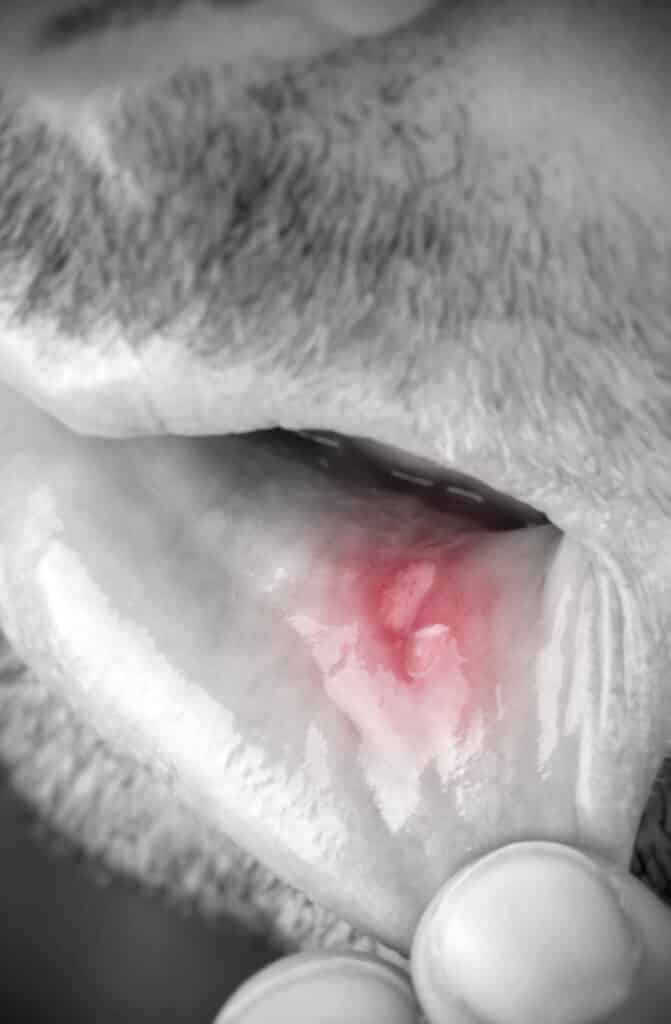
Almost everyone has experienced a canker sore at some point in their lives. Sometimes referred to as aphthous ulcers, these small, painful lesions can appear inside the mouth, causing discomfort and annoyance. While they’re not dangerous, they can make eating, drinking, and speaking a challenge.
In this comprehensive guide, we’ll explore possible causes, common symptoms, and treatment options, helping you understand how to manage and mitigate these pesky little sores.
What Are Canker Sores?
Canker sores are small, round ulcers that can develop on the soft tissues of the mouth, including the inside of the cheeks and lips, the base of the gums, the tongue, and the soft palate. They are typically white or yellowish in the center, with a red halo around the outside. Unlike cold sores, they are not contagious and do not occur on the lips or outside the mouth.
Causes and Contributing Factors
While the exact cause of canker sores is not fully understood, several factors are known to trigger their development, including:
- Injury to the mouth: Aggressive tooth brushing, dental work, and accidental bites can damage the delicate tissues of the mouth, leading to canker sores.
- Food sensitivities: Certain foods, especially those that are particularly spicy or acidic, can trigger canker sores in some individuals.
- Nutritional deficiencies: A lack of essential nutrients, including zinc, iron, folic acid, and vitamin B12, has been linked to the development of aphthous ulcers.
- Stress and hormonal changes: Emotional stress and hormonal fluctuations can be contributing factors, especially in women.
- Medical conditions: Health conditions like Crohn’s disease, celiac disease, and autoimmune disorders can cause frequent canker sores.
- Genetics: Evidence suggests that a predisposition to this issue can run in families.

Symptoms of Canker Sores
Usually, canker sores begin with a tingling or burning sensation, which then develops into a visible sore. Symptoms include:
- A small, painful sore inside the mouth
- Discomfort or pain, especially when eating, drinking, or talking
- Redness and swelling around the sore
Most sores heal on their own within a week or two, but larger or more severe sores may take a bit longer to resolve.
Prevention Tips
Although it may not be possible to prevent canker cores altogether, strategies can be adopted to reduce their frequency and severity.
Maintain good oral hygiene by brushing your teeth twice a day with a soft-bristled toothbrush and flossing regularly to keep your mouth clean and reduce your risk of injury. Drink plenty of water throughout the day to keep your mouth moist.
If you notice a particular food consistently causing issues, try to eliminate it from your diet. Additionally, avoid using toothpaste or mouthwash containing sodium lauryl sulfate, which can cause irritation. If you suspect a nutritional deficiency, consider taking supplements as recommended by your healthcare provider.
Treatment Options
Fortunately, most canker sores heal without treatment. However, if you’re experiencing significant pain or recurrent sores, several remedies can help alleviate your discomfort and promote faster healing.
You may have the ingredients for an effective antidote already in your pantry or medicine cabinet. Rinsing your mouth with a saltwater or baking soda solution is a great way to soothe oral lesions and support the body’s healing processes. Similarly, applying a small amount of milk of magnesia to the sore a few times a day can provide relief.
Topical treatments such as over-the-counter gels, creams, and patches can relieve pain and protect the sore from further irritation. Additionally, antimicrobial or numbing mouthwash can reduce discomfort and help keep the sore clean, reducing your risk of developing an infection.
In especially severe cases, your dentist or doctor may prescribe oral medications or corticosteroid ointments to reduce inflammation and soothe pain.

When to See a Dentist
Most of the time, canker sores are harmless; however, you should schedule an appointment with your dentist if you experience:
- Unusually large sores or sores that persist for three weeks or more
- Difficulty drinking or eating due to pain
- A high fever or signs of infection
Your dentist can help determine whether an underlying condition is contributing to the issue and recommend targeted treatments.
Comprehensive Care for Your Smile
At Eric Felt DDS, we understand that ensuring sparkling smiles goes beyond caring for your teeth; it extends to all aspects of your oral health. If you’re suffering from canker sores, schedule an appointment with us. Our staff are experts in providing relief from a wide range of issues, from gum disease to sores to inflammation. Working together, we can help you get back to your normal activities, free from the annoyance of canker sores.


